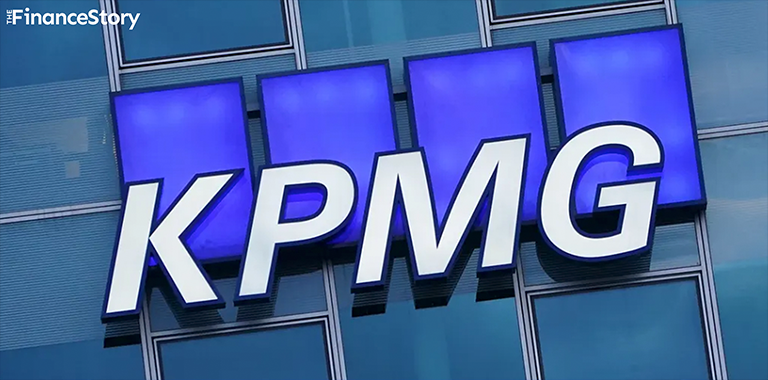The Big 4
Klynveld Peat Marwick Goerdeler also known as KPMG, is one of the four largest accounting firms in the world, alongside Deloitte, PricewaterhouseCoopers (PwC), and Ernst & Young (EY).
These global accounting networks form the Big 4, recognized for their huge size, possessing the latest technology, and the best of the best experts.
But it seems like the Big 4 cannot stay away from the spotlight due to its involvement in various scandals such as Enron, Wirecard, Lehman Bros., and World com, to name a few.
KPMG banned from Abu Dhabi Audits
Very recently the Abu Dhabi Accountability Authority (ADAA) removed KPMG from the list of accountants that have permission to sign companies’ financials in the capital of the UAE. This would result in restricting the firm from securing new audit contracts.
Coincidentally this announcement was made shortly after KPMG Lower Gulf elected a new chief executive Emilio Pera, who is currently a partner of the same.
This decision by the regulators, however, was not taken on a whim. A few weeks ago, The Dubai Financial Services Authority (DFSA) also imposed a fine of $1.5 million on KPMG LLP and $500,000 on its former Audit Principal, Milind Navalkar for their involvement in the Abraaj scandal.
They were assigned as the auditor of ACLD – Abraaj Capital Limited, an entity of The Private Equity Giant Abraaj Group for several years up until 2017. Abraaj collapsed in 2018 due to accusations of fraud.
Let’s look at what caused it.
The Abraaj Group Scandal
Abraaj was founded in 2002 by Pakistan-born businessman Arif Masood Naqvi.
Headquartered in Dubai, UAE, at a point it was the world’s largest private equity firm focusing on emerging markets, with approx. $14 bn in assets under management at its peak.
Abraaj had grown from operating in the UAE to across other emerging markets such as Asia, Africa, Turkey, and Latin America, among others.
But in 2017 it all came crashing down when Mr. Naqvi was accused of misusing $1bn worth of investors’ money from the Abraaj healthcare fund. The investors include The Bill & Melinda Gates Foundation, and the International Finance Corporation, an arm of the World Bank.
It was reported that the company’s main revenues couldn’t cover its operational costs and was allegedly spending way beyond its means. The firm started using other people’s money when financial shortfalls occurred.
The downfall could’ve been avoided had Abraaj been able to sell 66.40% of its stake in Pakistan’s K-Electric to Shanghai Electric Power for $1.77 billion. Shanghai Electric Power had agreed to the deal way back in 2016.
But when Irfan Ali, Pakistan’s privatization secretary at that time asked Abraaj for the share purchase agreement, the firm didn’t oblige.
Pending financial disputes on K-E electric’s books delayed the agreement, as well as a loss of $450 million was incurred because of it.
The downfall of Abraaj Group
In April 2018 Abraaj proposed to resign as manager of the healthcare fund after its investors raised concerns.
The main focus for the liquidators was then to pay off an estimated $1 billion of debt taken through the firm. They would do so by selling parts of the business, the K-Electric stake, and limited-partnership holdings in its own funds, etc.
Fast forward to July 2019, DFSA charged Mr. Naqvi with a $136 Million fine for deceiving the investors and mishandling their funds which led to the liquidity crisis.
He has also been banned from the Dubai International Financial Centre (DIFC), a special economic zone in the United Arab Emirates.
Why DFSA fined KPMG
The DFSA is in charge of the registration, oversight, and suspension/removal of Registered Auditors and Audit Principals operating in the DIFC.
According to them, ACLD (Abraaj Capital Limited) was the only entity of the Arbaaj Group that was authorized by the regulatory body.
The regulatory body of Dubai charged KPMG LLP and Milind Navalkar with a total of $2 million fine, given the reason that both of them failed to follow the appropriate international auditing standards.
DFSA stated that ACLD’s financial statements did not abide by the accounting rules and was hiding the truth about its finances.
“Had KPMG LLP performed its audit of ACLD to the expected standard, it would have been reasonable to expect it to have identified that, for more than five years ACLD was concealing the true state of its finances from the firm,” the regulatory agency wrote in its website post.
In July 2019 DFSA had rightfully so, imposed a fine of approx. $15.3 million on ACLD, on the grounds that;
- It failed to maintain adequate Capital Resources.
- Gave concealed information relating to its Capital Resources to DFSA.
- Provided financial statements that failed to show its true financial position, etc.
What next?
It’s not the first time that KPMG has been accused of audit shortfalls. The firm was fined $17.3 million over failed audits of Carillion and Regenesis PLC. It is claimed to be the second-highest fine imposed by the U.K.’s Financial Reporting Council.
KPMG LLP and Mr. Navalkar have applied DFSA’s findings for review to the Financial Markets Tribunal (FMT).
Many speculations are going around as to why ADAA removed KPMG from its list of authorized statutory auditors and banned them from gaining future audit contracts.
The Big 4 firm told the media that it is trying to remediate the situation by communicating with the emirate’s authorities.







